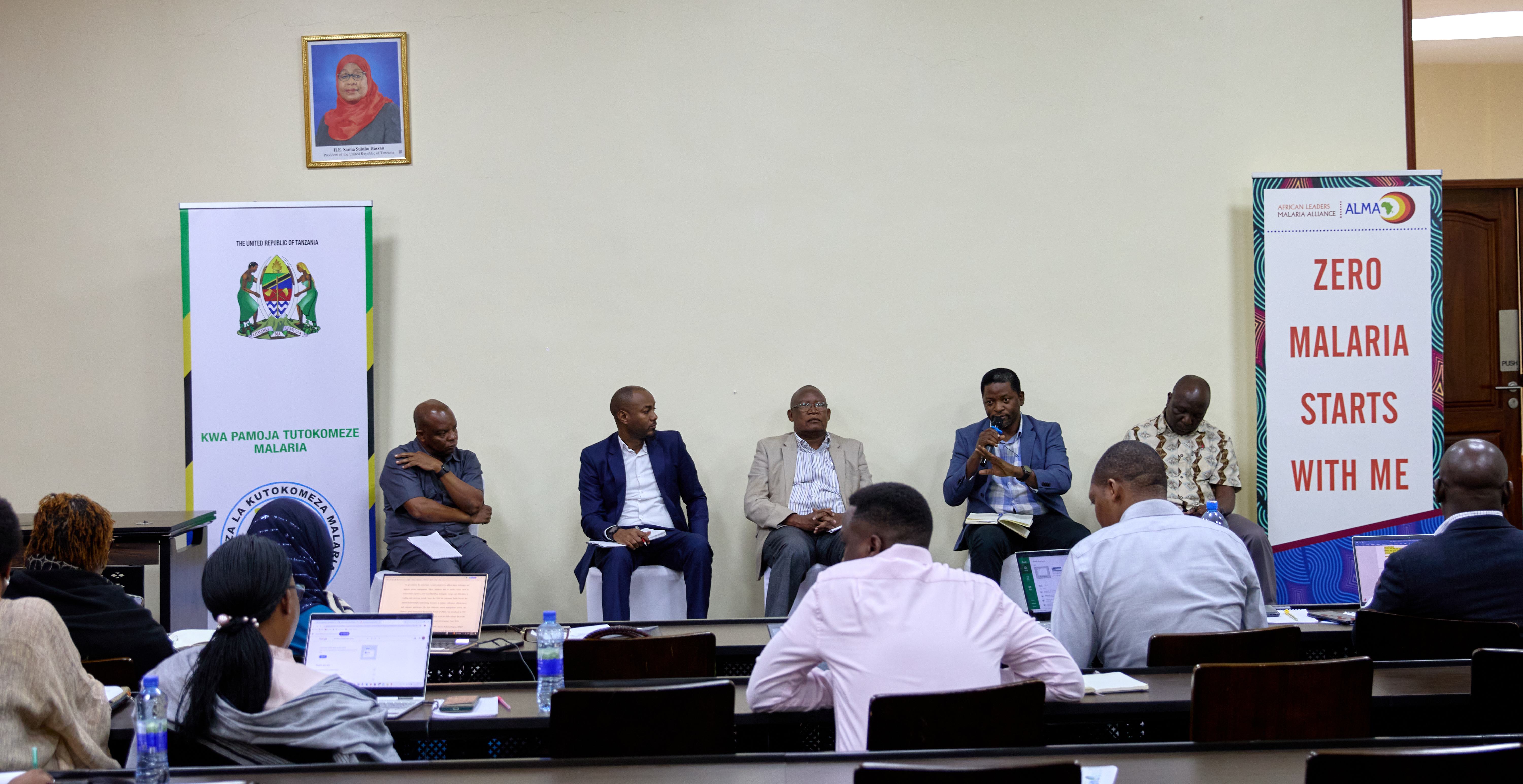
FORUM: Ifakara at Ministry Semi-Annual Programs Review Meeting

From August 14-15, 2024, scientists from Ifakara Health Institute took part in the Semi-Annual Programs Review Meeting (SAPRM) organized by the Ministry of Health in Dar es Salaam. The meeting, held at the APC Conference Hall in Bunju Beach, brought together key stakeholders to assess the progress made toward achieving the 2023 national and international health targets as of June 2024.
The event also served as a platform to identify necessary course corrections to overcome implementation challenges and ensure the successful attainment of these targets.
The SAPRM featured a series of parallel sessions, including those focused on the National Malaria Control Program (NMCP), the National AIDS and STI Control Program (NASHCOP), and the National Tuberculosis and Leprosy Program (NTLP). These sessions were crucial in reviewing the effectiveness of ongoing interventions and strategizing future initiatives to combat these critical health challenges.
NMCP Session: Malaria Surveillance Updates
The NMCP sessions were chaired by Dr. Dunstan Bishanga, Chief of Party of the PMI Shinda (Defeat) Malaria project, which is implemented by Ifakara and partners. The sessions included a series of insightful presentations on malaria surveillance initiatives in the country.
Dr. Muhidini Mahende, a senior researcher from Ifakara, presented findings on drug efficacy studies conducted as part of the PMI Shinda (Defeat) Malaria project. Following this, Dr. Deus Ishengoma, Principal Investigator of the Malaria Molecular Surveillance Study at the National Institute for Medical Research (NIMR), presented key results and lessons learned from Phase 1 of the study. He also provided a preview of Phase 2, which is set to be implemented in collaboration with Ifakara. This study is crucial for understanding the genetic changes in malaria parasites, which can inform the development of more effective treatment strategies.
Dr. Yeromin Mlacha from Ifakara delivered an update on malaria vector distribution and the susceptibility status of these vectors to insecticides. His insights are vital for guiding vector control strategies, particularly in areas where insecticide resistance poses a growing threat to malaria control efforts.
Strategizing the Future: Panel Discussions on mosquito Control, case management and surveillance
The meeting also featured a panel discussion titled "Where Are We Going: Strategic Directions and Future Priorities in Vector Control," chaired by Dr. Stephen Magesa. The panel brought together leading experts, including Dr. William Kisinza from NIMR Amani, Dr. Prosper Chaki and Dr. Samson Kiware from Ifakara, and Dr. Bilal Kabula from NIMR. The panelists reviewed the current status of vector control efforts, identified existing gaps, and proposed strategic directions for future initiatives.
The discussion highlighted the need for innovative approaches to address challenges, with a particular emphasis on climate change and the potential role of mathematical modeling in advancing vector control strategies, discussed by Dr. Kiware, a principal research scientist and mathematical modeler.
The final panel of the meeting focused on Malaria Case Management and Surveillance and featured Dr. Fabrizio Molteni from the Swiss Tropical and Public Health Institute, Dr. Deus Ishengoma from NIMR, and Dr. Dunstan Bishanga. Chaired by Dr. Sigsbert Mkude, this session highlighted the importance of robust surveillance systems and effective case management strategies in the ongoing fight against malaria. The panelists underscored the need for continued collaboration between national and international partners to achieve the desired health outcomes.
National Tuberculosis and Leprosy Program (NTLP) session
Ifakara was represented at the NTLP sessions by Dr. Jerry Hella, an epidemiologist and public health specialist at the Tuberculosis Research Group at Ifakara and head of the Clinical Trials and Biomedical Research Unit.
During the session, participants had the opportunity to hear updates from colleagues on ongoing initiatives and provide recommendations to NTLP on addressing future challenges effectively.
